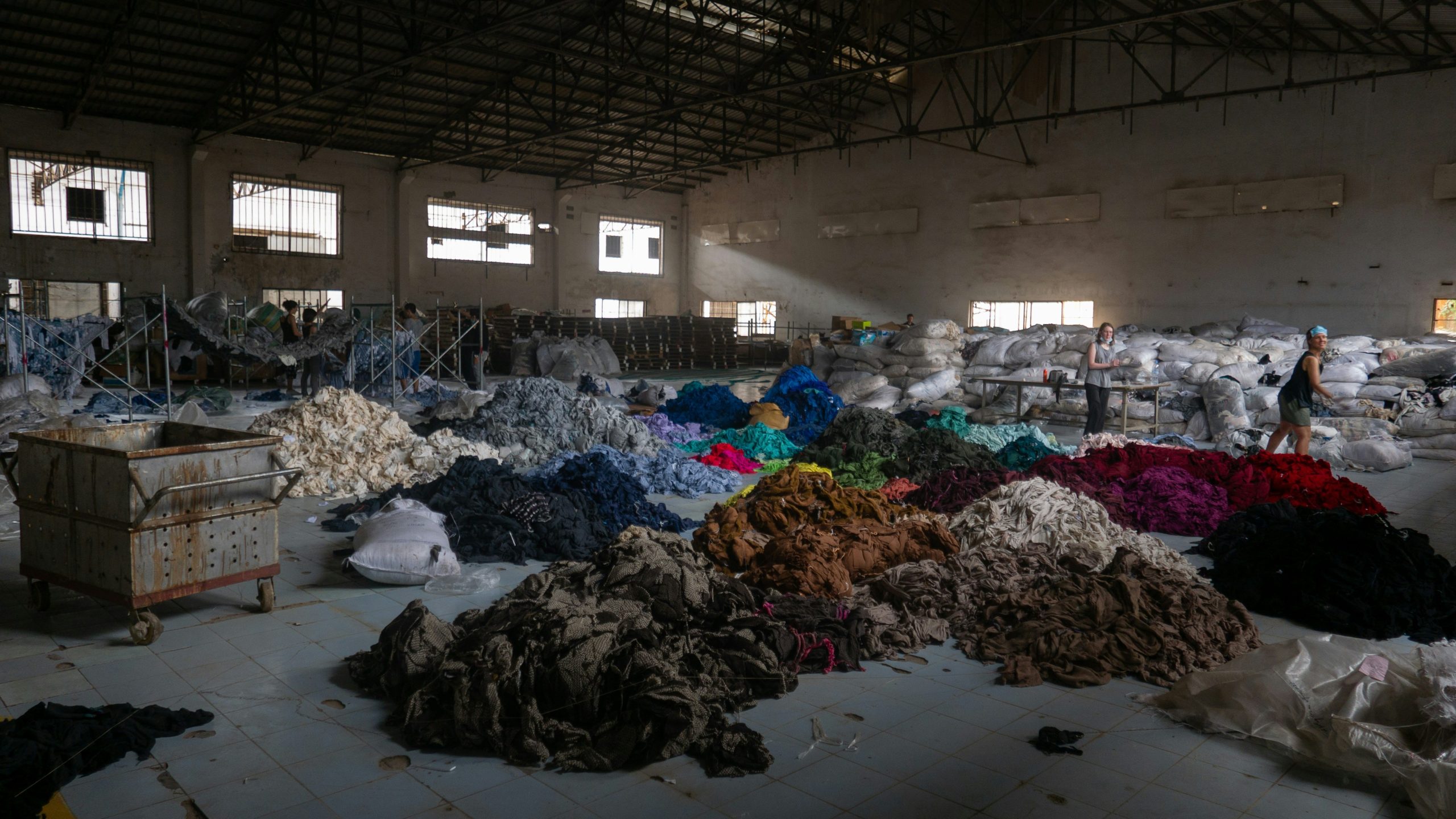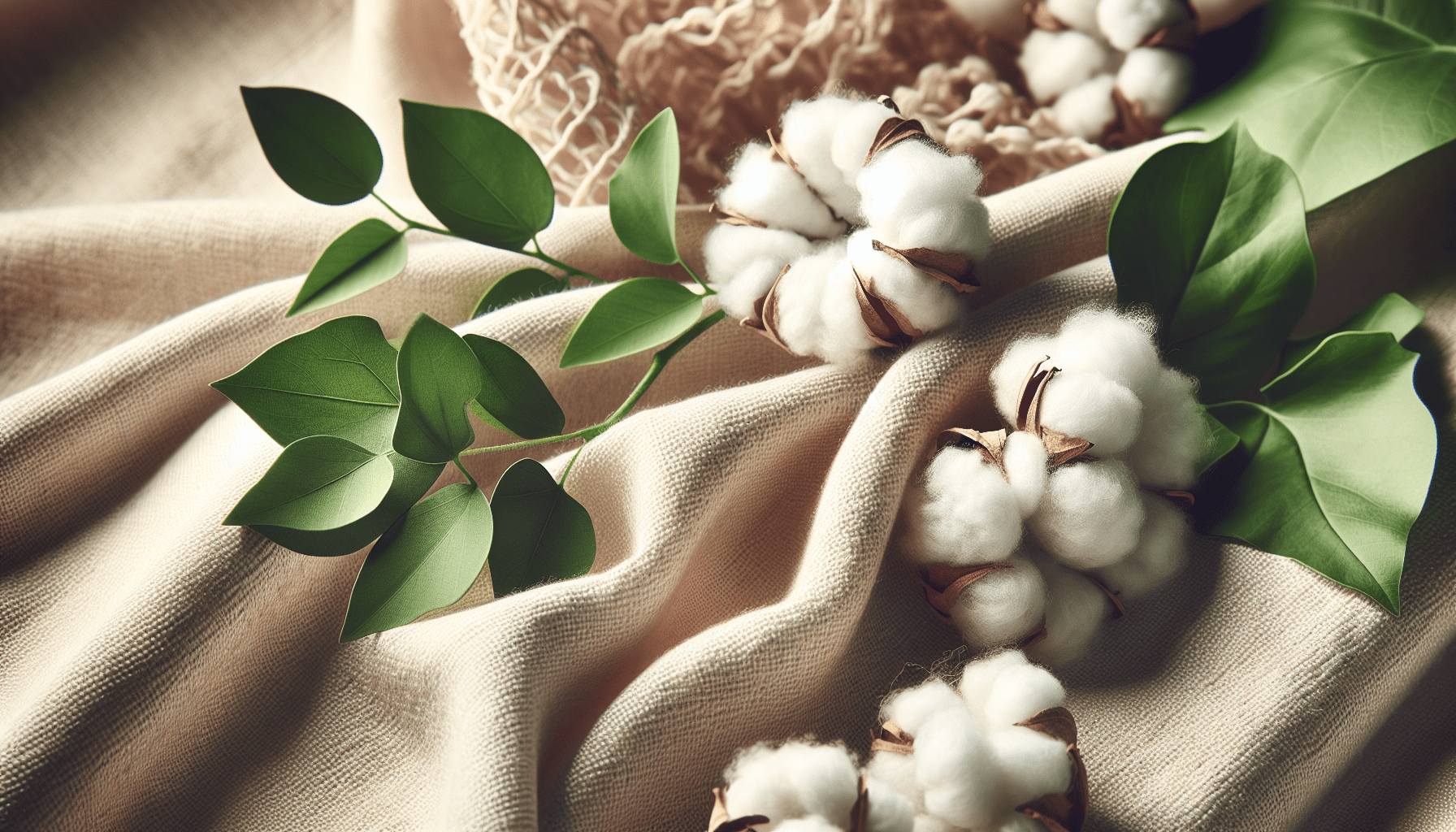Hey there! Let’s dive into the world of organic cotton and uncover the amazing benefits it brings to our wardrobes. Organic cotton clothing isn’t just a trend; it’s a sustainable choice that helps us take better care of our planet. From reducing our carbon footprint to promoting healthier farming practices, organic cotton supports a cleaner environment and a healthier lifestyle. Plus, it feels so soft and comfortable on our skin! Join us as we explore why making the switch to organic cotton clothing can make a big difference in our lives and the world around us. Have you ever wondered what makes organic cotton clothing so special and why more and more people are making the switch? If you’ve found yourself curious about the benefits and reasons behind the increasing popularity of organic cotton, you’re in the right place. Let’s delve into the world of organic cotton clothing and uncover its many advantages.
What Is Organic Cotton?
Understanding Organic Cotton
Organic cotton is grown without the use of synthetic chemicals such as pesticides and fertilizers. It relies on natural processes, which can include organic farming techniques, compost, and natural pest management. Essentially, organic cotton promotes healthier farming practices and a better environment.
The Major Benefits of Organic Cotton Clothing
Environmental Benefits
The environmental impact of cotton farming is significant, especially on a large scale. However, organic cotton offers several environmental benefits:
Reduced Chemical Use
Organic cotton farming eliminates the reliance on harmful pesticides and synthetic fertilizers, which are commonly used in conventional cotton farming. This reduction not only benefits the immediate environment but also protects the surrounding ecosystems from chemical runoff.
Soil Health
Organic cotton farming practices enhance soil fertility through crop rotation, composting, and the use of cover crops. Healthy soil is more resilient and better able to retain water, reducing the need for irrigation.
Water Conservation
Organic cotton requires significantly less water compared to conventional cotton. This is due to the healthier soil’s ability to retain moisture, along with farming practices that prioritize water conservation.
Conventional vs. Organic Cotton Water Usage
| Type of Cotton | Water Usage per Kilogram (liters) |
|---|---|
| Conventional | 10,000 – 20,000 |
| Organic | 7,000 – 10,000 |
Health Benefits
The benefits of organic cotton extend beyond the environment; they also play a critical role in our health.
Reduced Allergens and Irritants
Organic cotton is free of the synthetic chemicals and dyes found in conventionally grown cotton. For those with sensitive skin or allergies, this can mean fewer irritations and allergic reactions.
Non-Toxic Production
The non-toxic nature of organic cotton extends from the farming stage to the finished textile. This means that from the moment the cotton is planted until the time it’s made into clothing, there’s a reduced risk of harmful chemical exposure for workers and consumers.
Economic Benefits
Organic cotton farming can boost local economies and improve the livelihoods of farmers and communities.
Fair Trade Practices
Many organic cotton producers align with Fair Trade practices, ensuring fair wages and better working conditions for farmers. This promotes sustainable livelihoods and community development.
Quality of Organic Cotton Clothing
When it comes to the clothing itself, organic cotton offers several qualities that enhance its appeal.
Softness and Comfort
Organic cotton fabric is known for its softness and breathability. These qualities make it particularly comfortable to wear, even for those with sensitive skin.
Durability
Clothing made from organic cotton is often more durable than its conventional counterparts. High-quality organic cotton fibers are stronger and longer-lasting, meaning you may not need to replace your wardrobe as frequently.

How Is Organic Cotton Different from Conventional Cotton?
To truly appreciate the benefits of organic cotton, it’s important to understand how it differs from conventional cotton.
Farming Practices
Conventional Cotton
Conventional cotton farming heavily relies on chemical inputs to control pests and enhance growth. This can lead to several environmental and health hazards, including soil degradation, water pollution, and health risks to farmers.
Organic Cotton
Organic cotton farming, in contrast, emphasizes ecological balance and minimal environmental impact. By avoiding synthetic chemicals and focusing on long-term soil health, organic cotton farming practices are sustainable and eco-friendly.
Processing and Manufacturing
Conventional Cotton
The processing of conventional cotton often involves heavy chemical treatments to dye, bleach, and finish the fabric. This not only affects the final product’s quality but also introduces potential health risks.
Organic Cotton
Organic cotton processing avoids harmful chemicals and adheres to strict guidelines to ensure that the finished product is as natural and safe as possible. This results in a healthier and more eco-friendly end product.
The Role of Certifications
Importance of Certifications
Certifications play a significant role in ensuring the authenticity and integrity of organic cotton products.
Key Certifications to Look For
Global Organic Textile Standard (GOTS)
GOTS is one of the most stringent certifications for organic textiles. It covers the entire supply chain, from farming to final product, ensuring that organic standards and fair labor practices are met.
OEKO-TEX Standard 100
The OEKO-TEX Standard 100 certification ensures that textiles are free from harmful substances. While not exclusively for organic products, this certification indicates that the fabric meets strict safety standards.
| Certification | Scope of Coverage | Focus |
|---|---|---|
| GOTS | Comprehensive (farming to finished product) | Organic and social standards |
| OEKO-TEX Standard 100 | Testing for harmful substances at all production stages | Safety and chemical-free guarantees |

Why Choose Organic Cotton Clothing?
Supporting Sustainable Practices
When we choose organic cotton clothing, we are supporting farming practices that are environmentally sustainable. This means we are contributing to a reduction in pollution and soil degradation.
Healthier Lifestyle
Organic cotton clothing helps us lead healthier lives by reducing our exposure to toxic chemicals. For those with sensitive skin or allergies, the benefits can be even more pronounced.
Promoting Ethical Labor
By purchasing organic cotton clothing from Fair Trade certified producers, we support better working conditions and fair wages for farmers and workers. This helps elevate the standard of living for communities involved in cotton production.
Economic Considerations
While the initial cost of organic cotton clothing can be higher than conventional options, the long-term benefits often outweigh the price difference. Durable, high-quality organic cotton garments tend to last longer, providing better value over time.
Making the Transition
Where to Start
Transitioning to organic cotton clothing doesn’t have to happen overnight. Start by gradually replacing items in your wardrobe with organic options.
Helpful Tips
- Prioritize Essentials: Start with items that you wear frequently, such as t-shirts, underwear, and socks.
- Check Labels: Look for certified organic labels like GOTS or OEKO-TEX Standard 100 to ensure authenticity.
- Support Ethical Brands: Research brands that focus on organic and sustainable practices to make informed choices.

Addressing Common Concerns
Cost of Organic Cotton Clothing
One of the main concerns people have is the higher cost of organic cotton clothing. While it is true that organic cotton garments can be more expensive initially, the investment often pays off in terms of durability and long-term value.
Availability and Variety
As the demand for organic cotton continues to grow, more brands are offering a wider range of organic cotton clothing options. From everyday essentials to trendy fashion pieces, there’s an increasing variety available.
The Future of Organic Cotton
Growing Awareness
As awareness about environmental issues and sustainable practices increase, we expect to see a continued rise in the popularity of organic cotton clothing.
Innovations in Organic Farming
New technologies and approaches in organic farming are making it more efficient and scalable. This could potentially lower costs and increase the accessibility of organic cotton products.

Conclusion
Switching to organic cotton clothing offers numerous benefits, from environmental sustainability to better health and ethical labor practices. By making conscious choices and supporting organic cotton, we can collectively contribute to a healthier planet and a more equitable world. So, why not start today and experience the difference that organic cotton can make?
With this comprehensive understanding of the benefits of organic cotton clothing, we hope you’ll feel empowered to make informed and sustainable choices for your wardrobe. Together, we can make a positive impact on our health, the environment, and the lives of those who produce our clothing.



